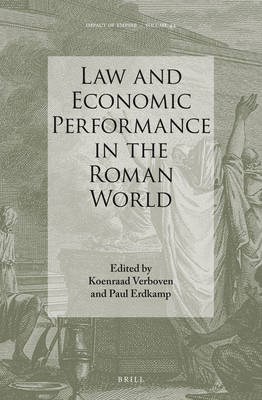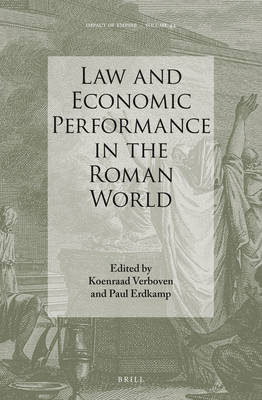
- Afhalen na 1 uur in een winkel met voorraad
- Gratis thuislevering in België vanaf € 30
- Ruim aanbod met 7 miljoen producten
- Afhalen na 1 uur in een winkel met voorraad
- Gratis thuislevering in België vanaf € 30
- Ruim aanbod met 7 miljoen producten
Zoeken
Law and Economic Performance in the Roman World
€ 241,45
+ 482 punten
Omschrijving
This book offers critical analyses of the dynamic relation between legal regulations, institutions and economic performance in the Roman world. It studies how law and legal thought affected economic development, and vice versa. Inspired by New Institutional Economics scholars the past decades used ancient law to explain economic growth. There was, however, no natural selection process directing legal changes towards macro-economic efficiency. Ancient rulers and jurists modified institutions to serve or safeguard particular interests--political, social, or economic. Nevertheless both economic performance and legal scholarship peaked at unprecedented levels. These were momentous historical developments. How were they related?
Specificaties
Betrokkenen
- Uitgeverij:
Inhoud
- Aantal bladzijden:
- 296
- Taal:
- Engels
- Reeks:
- Reeksnummer:
- nr. 44
Eigenschappen
- Productcode (EAN):
- 9789004525122
- Verschijningsdatum:
- 18/08/2022
- Uitvoering:
- Hardcover
- Formaat:
- Genaaid
- Afmetingen:
- 155 mm x 235 mm
- Gewicht:
- 619 g

Alleen bij Standaard Boekhandel
+ 482 punten op je klantenkaart van Standaard Boekhandel
Beoordelingen
We publiceren alleen reviews die voldoen aan de voorwaarden voor reviews. Bekijk onze voorwaarden voor reviews.







